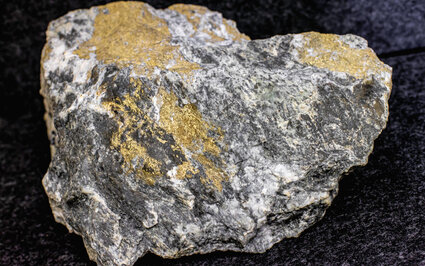 Brian Mason and the NDP have been complaining about lack of press coverage they get in the pages of the Edmonton Journal. When days before Farmer Ed went on TV, Liberal leader Kevin Taft finally came out, five weeks after the royalty report was issued, to say he supported the royalty review recommendations. It made front page news in the Journal, and he was given an approving pat on the head in the papers editorial.
Brian Mason and the NDP have been complaining about lack of press coverage they get in the pages of the Edmonton Journal. When days before Farmer Ed went on TV, Liberal leader Kevin Taft finally came out, five weeks after the royalty report was issued, to say he supported the royalty review recommendations. It made front page news in the Journal, and he was given an approving pat on the head in the papers editorial. The NDP on the other hand was given short shrift over their announcements regarding the royalties.
The NDP issued a statement to their members and supporters in their email newsletter;
Some party members have asked about the extensive coverage the Alberta Liberals have been receiving in the Edmonton Journal. This has been the case for several years, and with an election approaching, it will likely only get worse. The Journal is entitled to support the Alberta Liberals editorially, but unfortunately, its news coverage is often biased in their favour. This relates not only to the content of articles, but also to placement of stories, headlines, and photos.
Last week's coverage of the Liberal's position regarding royalties is a good example. The Liberals waited nearly 5 weeks before taking any position on the Royalty Task Force report, and then issued only the vaguest support for increasing royalties. In the Journal, this warranted a front page story and an editorial praising Kevin Taft for helping to "define the issue". In the meantime, Brian Mason and the NDP caucus have worked tirelessly to raise awareness on royalties and to fight for a better deal. Kevin Taft failed to provide leadership on this issue when it counted - but this does not deter the Edmonton Journal.
I want to be clear that this problem does not extend to other media outlets. It is unique to the Edmonton Journal. The Sun newspapers and the Calgary Herald have conservative editorial perspectives, but this doesn't usually affect their news coverage. Television and radio outlets also give generally fair coverage.
I would like to encourage our members and supporters to be aware of this problem, and to consider challenging biased coverage when they see it. The best way to do this is to write letters to the editor when you see unfair news coverage. You can write to the Journal at letters@thejournal.canwest.com. You may also wish to consult other media sources in order to get a more complete picture of politics in Alberta.
Thank you.
Sandra Houston,
Provincial Secretary
Often the pro-Liberal editorial bias of the Journal creeps into the news stories coming from the Leg.
Which was not the real news story as even Right Wing Edmonton Sun Columnist Neil Waugh noted in his column;
Conservatives' actions regarding royalties criminal: Taft
... EDMONTON - The Conservatives' lack of accountability on oil and gas royalties verges on criminal behaviour, Alberta Liberal Leader Kevin Taft charged.
Then he hilariously got out stick-handled by Brian Mason's tiny NDP caucus who asked for - and got - an emergency debate on resource royalties.
The reason behind the pro-Taft position of the Journal news and editorial writers covering the Leg was made clear in Leg Reporter Graham Thompson's column on the same subject. After spending the first half of his column uncritically quoting Taft he goes on to belittle the NDP's success at getting an emergency debate on the royalties issue. A debate that does not occur often in the Tory dominated house.
And one supported by disgruntled backbenchers not Stelmachs cabinet.
In supporting the NDP motion for an emergency debate on royalties, government members were embracing the old adage that the enemy of my enemy is my friend and so were happy to see the NDP go at the Liberals like two scorpions in a bottle and leave the government relatively unmolested.Or compare these two stories on the Premiers charge that the NDP wanted to bring back the dreaded NEP. Of course it is a favorite tactic of the Government to cry NEP when wanting to inflame their supporters. Of course the charge didn't stick but you wouldn't know it from the Journal article.
It is much easier for the NDP to take a black and white stand on royalties than the Liberals.The NDP doesn't have any chance of forming government and therefore doesn't have to worry about implementing its policies. Its ambition begins and ends at replacing the Liberals as official opposition.
It's an understandable strategy, one leader Brian Mason has been playing for months. And it's one he'll continue to play all through the fall session.
Edmonton Journal
Premier Ed Stelmach compared an oil and gas production tax to the much maligned national energy program today in the legislature.Such a tax was one of the key recommendations of the province's royalty task force that delivered its report in September.
In question period, NDP Leader Brian Mason pressed Stelmach as to why he didn't adopt it and panel's other recommendations. Stelmach said it would cripple the province's economy.
"He wants a production tax, which goes back to the old strategy ... that drove Albertans out of the province, created a situation that people actually couldn't pay off their mortgages, had to leave, businesses went broke," Stelmach said.
"We're not going back to that kind of model of collecting royalties."
It was the second straight day opposition leaders went after Stelmach over royalties.
The Alberta Liberals demanded to see energy department documents from previous royalty reviews. So far, the government has kept most of those documents from the public.
Stelmach didn't answer the question directly. Instead, he talked about his government's record since he became premier last year.
Taft also asked Stelmach to explain why his governments refused to raise royalties until this year, despite warnings from the energy department that they were missing their internal targets.
"We take advice, obviously, from others," Stelmach said.
"But at the end of the day in this government the decisions are made by government, not listening to advice that may come from bureaucracies."
Edmonton SunPremier Ed Stelmach compared a key recommendation of his own royalty task force to the dreaded national energy program yesterday.
He also said the government overruled calls from experts for higher royalties from the energy sector because it got better advice from Tory politicians.
After ignoring repeated demands from the opposition to table all documents related to proposed energy royalty increases in the house, Stelmach suggested his government couldn't have followed through on an independent panel's recommendation that it charge a surtax on products from the oilsands.
"He's supporting the panel in its entirety," Stelmach said of a question from NDP Leader Brian Mason on why Alberta receives less oil royalties than nearly every other jurisdiction on earth.
"He wants a production tax, which goes back to the old, old strategy the former party from Ottawa imposed in Alberta, that drove Albertans out of the province and created a situation where people actually couldn't pay off their mortgages, had to leave. Businesses went broke. We're not going back to that kind of model for collecting royalties."Mason was incredulous, noting that the independent task force was appointed by Stelmach's own government.
"Mr. Speaker, I just heard the premier compare the royalty task force to the Trudeau government's national energy program.
"So my question is, if they came up with something that's equivalent to the national energy program, Mr. Premier, why did you appoint those individuals?"
Stelmach didn't answer, instead suggesting the NDP can't both support the report and criticize it.
And for those who are in the know many of the editorial staff at the Journal have been suspected of having a bias towards the Liberals. And not just because the are the 'Official Opposition'. Now we know for sure.
Another One Bites the Dust...
Edmonton Journal veteran Larry Johnsrude is leaving journalism for redder pastures -- to join the staff of the Alberta Liberals.
He's the third high profile Alberta journalist to make the jump to politics this year. In January, Paul Stanway of the Edmonton Sun and Tom Olsen of the Calgary Herald joined Premier Ed Stelmach's office as senior flacks.
Here's the letter Johnsrude wrote to his colleagues at The Journal
Hi all,
With mixed emotions I would like to announce I have accepted the position of Director of Communications for the Alberta Liberal Caucus. It wasn't something I was seeking but was an opportunity that presented itself and I felt I couldn't turn it down. Over the past 11 years with The Journal, I have enjoyed working with all of you. I admire your professionalism and journalistic integrity. Journalism has been good to me, but I feel this is an opportunity to acquire a new set of skills and embark on a new profession.
Best wishes to all.
Larry Johnsrude
Johnsrude was the web-site editor for the Journal. He used to do a political blog
until April of this year. His new online blog he launched back then is now gone. As is he.
I've got a new blog address: MY NEW BLOG ADDRESS
It uses new software that allows for posting photos, video, links and room for feedack — all the bells and whistles.
The blog address this one appears on will remain online as an archive of my pre-April 24 postings. But anything posted since then will be at my new blog address.Not Found: Forum Not Found
The forum you requested does not exist.
So if you detect a bias in the news coverage in the Edmonton Journal when it comes to Kevin Taft and the Alberta Liberals it's part of the Journal's view that the paper is a political player, a king maker if you like.
The paper has a long history of this going back to when they covered civic politics in the city and what applies to civic politics also applies to their provincial coverage.
The Journal quickly turned on Bill Hawrelak when he decided to run again in the Sixties after he was found to have been in a conflict of interest. They ran a concerted campaign against him ,including front page editorial telling voters not to vote for him, but he won anyways.
In Edmonton, just as the Journal pandered shamelessly to William Hawrelak's Citizens' Committee during the 1950s, it again shilled patently for the new age progressivism of the city's brie elites in the 1990s. According to Lorimer, "Given the situation in which the mass media operate, however, it is unlikely that there can be any dramatic change in the way they inform people about city politics."(f.42) With little budget for sustained investigative reportage, and with so little real, long-term news of significance to break, the press gallery appears to fear becoming as marginalized on the news pages as the councils they cover. One remedy has been to transcend "objective" reporting and to editorialize within the guise of covering the story.
During the Lougheed years, when the PC's dominated the Leg and the NDP had only one seat,and the Liberals none, they viewed themselves as the 'official opposition'. This inflated view of their political importance, has continued in the editorial mindset at the paper ever since.
This of course fulfills William Burroughs dictum; "we don't report the news, we write the news."
Alberta, Premier,
Alberta NDP, Brian Mason, Ed Stelmach,
election,PC, Edmonton, politics, Conservatives,media, politics, Edmonton Journal,
Alberta, Liberals, MLA, Taft,




